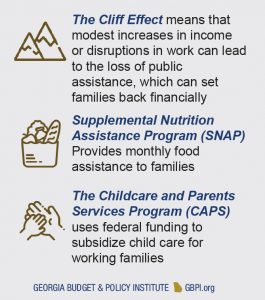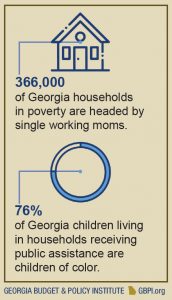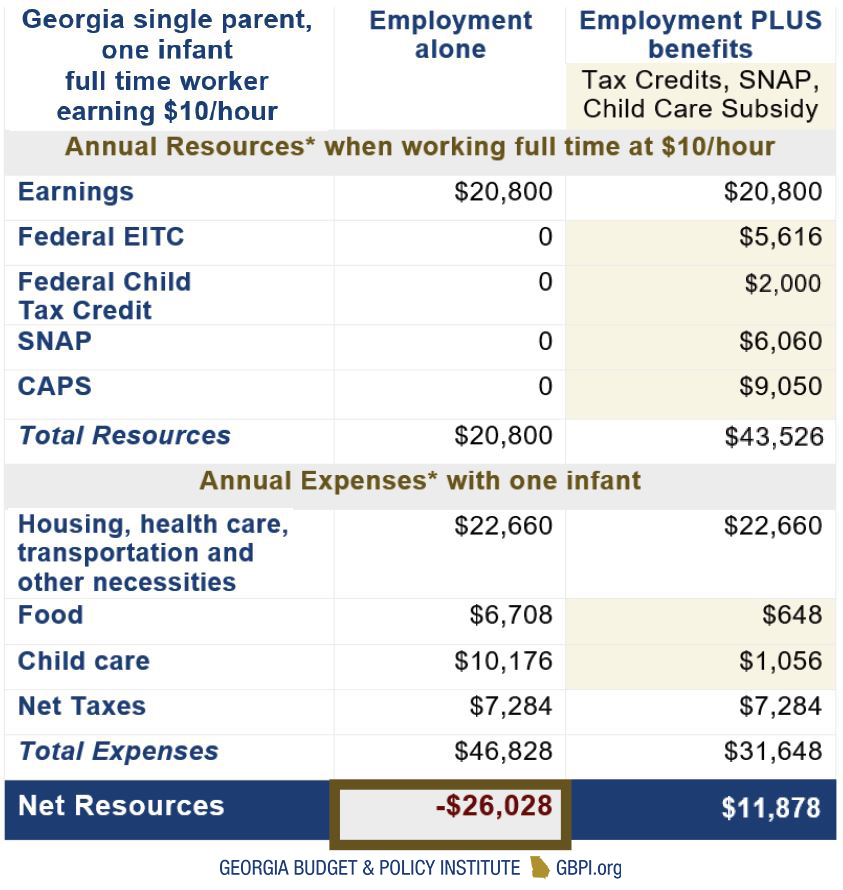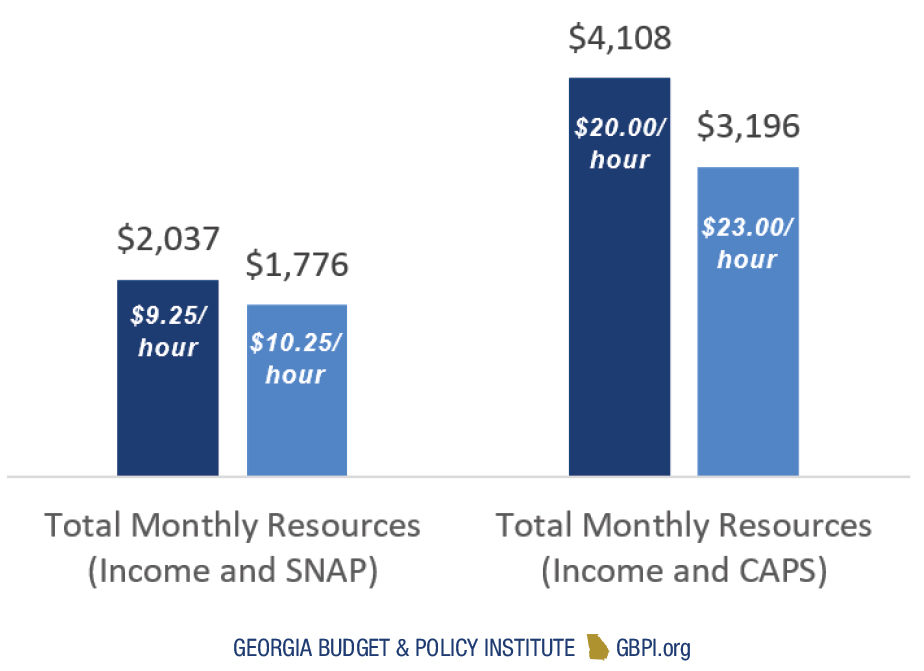What is the Cliff Effect?
 The cliff effect occurs when an individual abruptly loses their assistance as a result of changes in income or work activities. Safety net programs that have income thresholds or work activity requirements are well known for their cliff effects. Many argue that the cliff effect reinforces a culture of dependency on the safety net by discouraging work, yet an abundance of research suggests that unfair rules are much more likely to hurt a parent’s ability to navigate the labor market and find quality, family-supporting work.
The cliff effect occurs when an individual abruptly loses their assistance as a result of changes in income or work activities. Safety net programs that have income thresholds or work activity requirements are well known for their cliff effects. Many argue that the cliff effect reinforces a culture of dependency on the safety net by discouraging work, yet an abundance of research suggests that unfair rules are much more likely to hurt a parent’s ability to navigate the labor market and find quality, family-supporting work.
Georgia’s SNAP and Child Care Cliffs are Steep for Hardworking Georgians
Source: GBPI analysis of benefit amount changes based on 2019 program rules for a household with one full-time worker, one infant
3.6 Million Georgians make $24,000 a year or less
 The average hourly wage required to afford basic needs in Georgia is $24.14. This is more than triple the federal minimum wage of $7.25 per hour, four times the state’s minimum wage of $5.25 per hour and higher than the state’s median hourly wage of $16.85.
The average hourly wage required to afford basic needs in Georgia is $24.14. This is more than triple the federal minimum wage of $7.25 per hour, four times the state’s minimum wage of $5.25 per hour and higher than the state’s median hourly wage of $16.85.
Without critical assistance from the safety net, a single parent of one with an hourly wage of only $10/hr has to recover $26,028 at the end of the year because of the high costs of food, child care, health care, housing and other necessities.
Georgia’s Workers Not Meeting Self-Sufficiency
Measuring the Impact of the Safety Net on Georgia Families
 *Note: Annual resources: Gross annual earnings based on full-time work for $10/hour;
*Note: Annual resources: Gross annual earnings based on full-time work for $10/hour;
Federal EITC and Child Tax Credit amounts based on IRS rules for one parent, one dependent; SNAP amount based on USDA benefit calculation for a two-person household, and CAPS amount based on value for one infant in care receiving quality rated discount. Annual expenses are based on Self-Sufficiency Standard for Georgia.
Recommendation:
Declining opportunities to move up the economic ladder can keep parents from improving their family’s long-term prosperity and contributing to the state’s economy. The goals of all safety net programs are the same: encourage work, promote family economic security and well-being, and eliminate poverty. To ensure programs achieve those goals, Georgia lawmakers should make program improvements that help families mitigate cliff effects.
Want to know more? Read the full report here.







